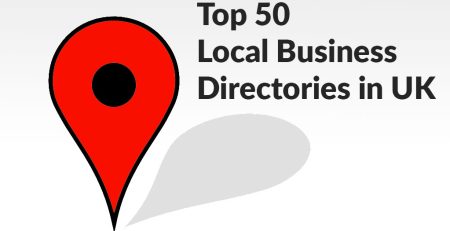5 Ways To Optimize Your Website For Google’s SEO
5 Ways To Optimize Your Website For Google’s SEO
In today’s digital age, having a website is crucial for any business to establish a strong online presence. However, just having a website is not enough.
To ensure that your website is visible to potential customers, it needs to be optimized for search engines like Google.
Optimizing your website for Google involves various techniques and strategies that can help improve your website’s ranking on search results.
In this article, we will discuss five ways to optimize your website for Google, including conducting keyword research, optimizing website content, improving website loading speed, building high-quality backlinks, and utilizing meta tags and descriptions.
By implementing the following strategies, you can improve your website’s visibility and drive more organic traffic to your website.
1. Conducting Keyword Research to Identify Relevant Terms and Phrases
Keyword research is the process of finding and analyzing the terms and phrases people use to search for products, services, or information on search engines like Google. Conducting keyword research is essential to identify the relevant keywords that people use to search for your products or services, which can help you optimize your website content to rank higher on Google search results.
To conduct keyword research, you can use various tools like Google Keyword Planner, Ahrefs, SEMrush, Moz, or other similar tools. These tools help you find the keywords related to your business, estimate their search volume, and competition level, and suggest new keyword ideas.
Once you have identified the relevant keywords, you can optimize your website content, including headlines, subheadings, body text, images, and other elements, with these keywords. This helps Google understand your website content and rank it higher on search results for relevant searches.
2. Optimizing Website Content with Keywords and Phrases to Improve Ranking
Keyword optimization involves integrating the relevant keywords and phrases into your website content to help Google understand what your website is about and rank it higher on relevant search results. Here are some tips for optimizing website content with keywords and phrases:
- Use relevant and specific keywords and phrases that match your website content.
- Include keywords in the page title, H1 tag H2 tags H3 tags H4 tags, and body text.
- Ensure that the keywords flow naturally and do not appear spammy or forced.
- Avoid overusing keywords, as this can result in a penalty from Google.
- Optimize images with relevant keywords by including descriptive alt tags and filenames.
Keyword optimization helps your website appear in search results when people search for relevant terms and phrases related to your business. However, remember to prioritize creating high-quality content that provides value to your audience rather than solely focusing on keyword optimization.
3. Improving Website Loading Speed for Better User Experience and Higher Ranking
Website loading speed is an essential factor that affects user experience and website ranking. Google considers website loading speed as a crucial ranking factor as it affects how users engage with your website. Slow-loading websites can result in high bounce rates, low user engagement, and low search rankings. Here are some tips for improving website loading speed:
- Use a reliable hosting provider and upgrade to a plan that meets your website’s needs.
- Compress images without compromising their quality to optimize them.
- Minimize the use of plugins and remove any unused plugins.
- Use a content delivery network (CDN) to reduce server load time.
- Enable browser caching to reduce server requests and load time.
By improving website loading speed, you can provide a better user experience to your visitors, reduce bounce rates, and increase user engagement. Additionally, a faster-loading website can help improve your search rankings, as Google prioritizes websites with better user experience.
4. Building High-Quality Backlinks to Increase Website Authority and Visibility
The term backlink refers to links that point to your website from other websites. Backlinks are an essential ranking factor, as they help Google understand the relevance and authority of your website. Websites with high-quality backlinks from other reputable websites tend to rank higher in search results.
To build high-quality backlinks, you can:
- Create high-quality and informative content that other websites would want to link to.
- Reach out to other website owners or bloggers and request them to link to your website.
- Guest post on other relevant websites and include a link to your website in your author bio.
- Participate in online forums and include a link to your website in your forum signature.
Remember to focus on building high-quality backlinks rather than just the quantity of building high-quality backlinks:
High-quality backlinks come from reputable websites that have high domain authority and are relevant to your website content. Avoid buying backlinks or participating in link exchange schemes, as these practices can result in penalties from Google.
Building high-quality backlinks take time and effort, but it is an essential factor in improving your website’s authority and visibility on Google. By building a strong backlink profile, you can improve your search rankings, drive more traffic to your website, and increase your online authority.
5. Utilizing Meta Tags and Descriptions to Improve Click-Through Rates and Visibility
Meta tags and descriptions are HTML elements that provide information about your website content to search engines like Google. They are essential in improving click-through rates and visibility on search results pages. Here are some tips for optimizing meta tags and descriptions:
- Use relevant keywords and phrases in the meta title and description.
- Keep the meta title under 60 characters and the meta description under 155 characters.
- Write compelling and informative meta descriptions that encourage users to click on your website link.
- Avoid duplicating meta tags and descriptions across multiple pages.
By optimizing your meta tags and descriptions, you can improve your click-through rates and visibility on search results pages. A well-written meta description can encourage users to click on your website link, even if your website is not at the top of the search results page.
Bonus Tip) Keep Eye on Reputable Guest Posting Opportunities
If you’re looking to get your website ranked higher on Google, then you should keep an eye out for reputable guest posting opportunities. Guest posting is a great way to build relationships with other bloggers and promote your blog content. In addition, guest posting can be a great way to learn about new SEO techniques and improve your website’s visibility.
To find guest blogging opportunities, you can use tools such as BuzzSumo or Hootsuite. You can also contact established bloggers and ask if they would be interested in writing a guest post for your blog. Once you have identified a few potential guest posting opportunities, you should prepare a proposal that includes:
- A summary of the article or blog post that you want to write
- The unique perspective that you will bring to the article or blog post
- A list of links to relevant articles or resources that support your argument
- A timeline for when the article or blog post will be published
- Your contact information so the author can reach out if there are any questions
conclusion
Optimizing your website for Google can help improve its visibility, drive more traffic, and ultimately increase your business’s success.
Conducting keyword research, optimizing website content, improving website loading speed, building high-quality backlinks, and utilizing meta tags and descriptions are some of the essential techniques that can help optimize your website for Google.
However, remember that SEO is an ongoing process, and it takes time and effort to see results.
By consistently implementing these strategies and continuously monitoring and improving your website’s SEO, you can stay ahead of the competition and establish a strong online presence for your business.












Leave a Reply